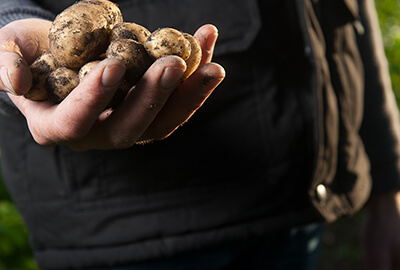Organic farming has become more popular in recent years as people have become increasingly interested in the benefits of organic produce. Unlike conventional farming, organic farming does not rely on chemical fertilizers and pesticides.
While it may be more costly and labor-intensive to farm this way, the benefits to soil health are undeniable. Here we’ll explore some of the ways in which organic agriculture can help improve soil health and overall crop yields.
Organic farmers use a variety of techniques to improve soil health, including crop rotation, cover crops, and composting. Crop rotation is the practice of growing different crops in a field in successive years. This helps to break up pest cycles and prevents the build-up of damaging toxins in the soil.
Cover crops are plants that are grown between cash crops (the main plants that are harvested for sale). These cover crops help to prevent erosion, add nutrients to the soil, and suppress weeds.
Composting is the process of breaking down organic matter into a material that can be used as a fertilizer. This adds vital nutrients to the soil and helps to improve its structure.
Organic agriculture also tends to promote biodiversity. This means that there are a greater number of different plant and animal species present on an organic farm. This is beneficial for soil health as it helps to improve the overall health of the ecosystem.
Organic farming practices like these can have a significant impact on soil health. They help to build up the organic matter in the soil, improve drainage and aeration, and reduce compaction. These benefits lead to healthier plants and higher yields. In addition, organic methods help to protect the environment by reducing chemical runoff and promoting biodiversity.
While organic farming has many benefits, it is important to remember that it is not a perfect solution. Proper management and land stewardship are still essential for maintaining healthy soils. If we want to ensure the long-term productivity of our farmland, organic methods should be a key part of our strategy.
Organic farmers still need to use some synthetic chemicals, such as herbicides and insecticides. However, organic farmers are required to use these chemicals in a more environmentally-friendly way. They must also follow strict guidelines set by the National Organic Standards Board.
Organic farming is a more sustainable way of agriculture that can have numerous benefits for soil health. By using techniques such as crop rotation, cover crops, and composting, organic farmers can help to improve the quality of their soils. This in turn can lead to higher crop yields and a healthier environment.
Overall, organic farming is a more sustainable and environmentally-friendly way of producing food. It is also better for soil health. If you’re interested in eating healthier and supporting sustainable agriculture, look for organic foods at your local grocery store or farmer’s market.


